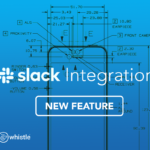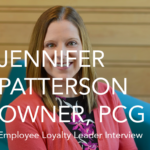Employee Loyalty Leaders
Interviews with HR Leaders Building Exceptional Employee Experiences
Interviews with HR Leaders Building Exceptional Employee Experiences
Companies with a strong, defined culture centered around trust, care and empathy always seem to navigate challenges very well.
As companies look ahead, there’s no disputing the pandemic has fundamentally changed the way people work. This shift impacts some industries more than others, but employees of all kinds have different needs that employers will need to address — or risk losing top talent.
In this interview series, we’re talking to HR leaders to get their insights and stories about how companies can improve the employee experience.
Rob Seay is an experienced HR leader working as COO at Artigem. Rob has worked in the Human Resources industry for 20+ years, building talented teams and maintaining positive employee relations during organizational change.
In your opinion, what is the most important responsibility of an HR department?
It’s hard to narrow down to one responsibility – but from my perspective I would probably have to say culture/engagement. Companies with a strong, defined culture centered around trust, care and empathy always seem to navigate challenges very well.
With all the information in the news about The Great Resignation, what do you think hiring managers really need to understand?
Times have changed and will probably continue to evolve in the future. It’s an “employee’s market” right now and if employers want to attract and hire top talent, they need to be flexible and creative with their offers. Whether that’s allowing positions to be remote, offering a creative benefit or schedule – employees (or potential employees) are openly expressing their needs and wants and not settling for less.
Have you noticed any trends in employee loyalty, and what can companies do if they face productivity challenges?
I think companies want to be careful not to assume they know what the issue or problem is without soliciting the employees. Too often companies want to quickly implement a solution to a problem, without truly understanding the problem first. Determine the root cause, then establish a strategy or action plan to solve it.
What is one thing HR leaders can do differently that will have the biggest positive impact on employee morale?
Active listening. Employees are human beings, and they want to know that you care. HR has to understand that a transformation is taking place from assuming we know what’s best for our employees to listening to what employees are wanting and needing (as referenced above). The days of providing a standard benefit like PTO to meet everyone’s needs is long gone. Every employee is different with different needs and if you (HR) are not actively interacting/listening to these wants/needs and trying to address them, employees will become frustrated and leave.
What tips or examples do you have on ways companies can show employee appreciation?
There are several – one of the most powerful is creating a space and empowering peer-to-peer recognition. Whether that’s shout-outs at a company meeting or creating recognition badges on a channel like slack – allowing employees to recognize and be recognized by their peers is one of the most powerful.
Also, being thoughtful about the recognition can have a lasting impact and impression on an employee. For example, if I know that one of my employees is a single parent with two small children that occupy much of their social time outside of work, I may buy an appreciation card and hand-write a note, along with a gift certificate for childcare for an evening. Take the time to build relationships with your employees to get to know what types/kinds of appreciation they prefer the most.
How important is new employee onboarding, and what tips or guidance would you share that have been successful for you?
Employee onboarding is very important, as it’s the first true interaction of the employee to the business. How successful or unsuccessful the onboarding process is can leave a lasting impression on the individual. My recommendation would be to error on the side of spending too much time developing a thorough onboarding process, as it will pay off in the long run. Be thoughtful about how much information to share versus retention of that information, as onboarding should not be a “check the box” process.
What are the biggest opportunities and/or pitfalls companies face when it comes to training and development? Any ideal solutions?
I think a lot of organizations are still under the “one size, fits all” approach when it comes to training and development. While this approach may be cost effective, it may not be the most impactful or successful. Leaders have to understand that not all employees learn the same, so look for programs that provide different options and flexibility, i.e. classroom learning and/or online coursework, etc.
Another pitfall organizations have fallen into are putting all the responsibility on the employees to “own” their development and training. While empowering employees to define and determine their learning style is a good thing, the company still needs champions of training and development to encourage and assist employees. Many times employees may need guidance on how to get from their current position to an ideal future role.
If you could encourage your peers to address one thing within their organization to positively impact the employee experience, what would you suggest and why?
Take the time to listen to your employees and show them that you care. Not just about them as employees, but about them as individuals. Ignite empathy within your organization and you’ll be amazed at the results.
Sign up now to receive monthly updates from Whistle including more interviews with HR leaders sharing their thoughts on employee loyalty, culture and experience.

 Employee Loyalty Leaders with Jennifer Patterson
Employee Loyalty Leaders with Jennifer Patterson